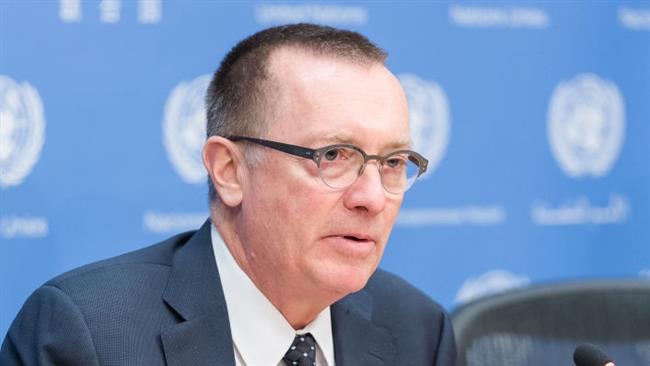

On an important international stage, the United Nations and many major world countries all speak appreciatively of Iran’s commitment to its nuclear agreement with foreign states, while the United States acts as the sole detractor of the landmark deal.
On Thursday, the UN Security Council held a plenary meeting addressing the implementation of the Joint Comprehensive Plan of Action (JCPOA), as the agreement is officially named.
The accord was clinched in Vienna in 2015 between Iran and the P5+1 group of nations, namely the US, the UK, France, China, Russia, and Germany. It lifted nuclear-related sanctions on the Islamic Republic, which, in turn, curtailed its nuclear activities in certain regards.
It came about after more than a decade of at times frustrating political haggling and long-drawn-out obstreperousness by some negotiating teams.
UN political chief Jeffrey Feltman, EU Ambassador to the world body Joao Vale de Almeida, and envoys from all the signatories to the deal, sans Washington, took up the cudgels for the accord’s efficiency and Tehran’s verifiable adherence to it.
Feltman told the council that UN Secretary General Antonio Guterres “is deeply encouraged by the continued commitment by all participants to the agreement,” calling it “the embodiment of successful multilateral diplomacy, political will, and perseverance.” He noted the International Atomic Energy Agency had issued seven reports, the latest in early June, documenting Iran’s continued implementation of its nuclear-related commitments.
The diplomatic achievement, Feltman said, “gives us all hope that even the most difficult issues among states can be addressed through dialogue, understanding and reciprocity.”
Vale de Almeida, who was speaking on behalf of EU foreign policy chief Federica Mogherini also hailed the outcome of the agreement, saying, “The initial results are clear and speak for themselves.” At a time when the world is again faced “with the threat of unchecked nuclear capabilities,” he said the deal was “a pillar of the international non-proliferation agenda” that needed to be fully implemented.
In an apparent reference to the opposition put up by the US to the agreement under President Donald Trump, Vale de Almeida stressed, “We would not be in a better position to address all the other non-nuclear matters (with Iran) without the JCPOA in place.”
Britain’s Deputy UN Ambassador Peter Wilson called the agreement “one of the most important diplomatic achievements in recent memory.”
He said the United Kingdom encouraged all countries and parties to the agreement “to uphold their commitments, including ensuring that the Iranian people gain further tangible benefits from sanctions relief.” His remarks were interpreted as a tangential jab at Trump’s threat to terminate Washington’s commitment to the accord.
US Ambassador to the world body, Nikki Haley (seen below), claimed the Security Council had ignored what the US viewed as “Iran’s repeated violations” of the nuclear agreement. She also said Washington was conducting a comprehensive review of the deal.
Washington has, time and again, taken great exception to the missile work. Tehran says the projectiles are not capable of carrying nuclear warheads as is prohibited under the accord, and that the missile program serves completely defensive purposes.
Tehran has likewise blamed Washington for preventing the accord’s full implementation. It has cited the White House’s refusal to offer tangible guarantees to world banks and financial institutions that they would not come under US punitive measures if they fully resumed their financial transactions with Iran in the post-sanctions era.







